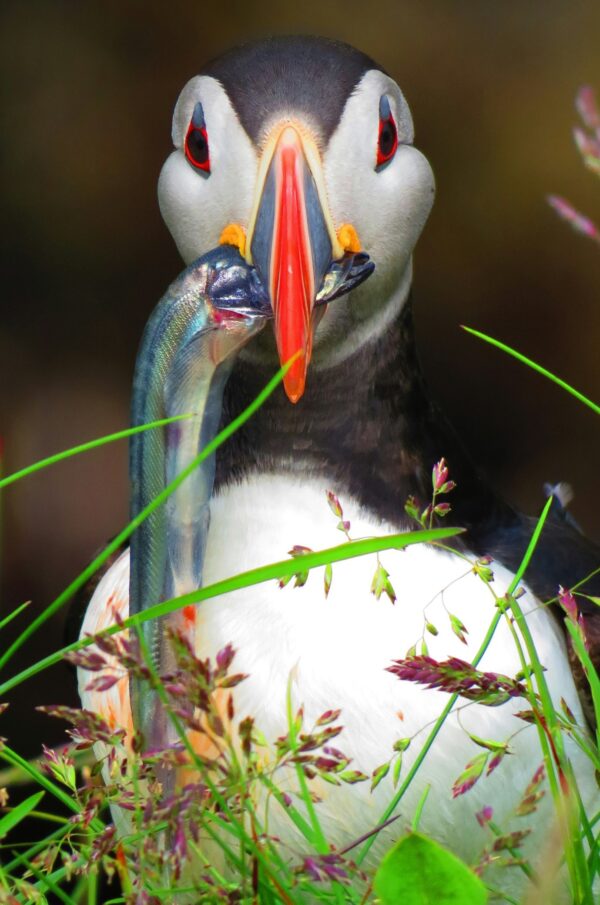The UK government has vowed to end industrial sandeel fishing in English waters, a move conservationists say will be a “game changer” for saving the UK’s globally important seabird colonies.
English waters of the North Sea will be closed for commercial sandeel fishing before the start of the season on 1 April. North Sea fishermen have previously had a catch quota of 5,773 tonnes of the tiny fish each year, although sandeel fishing has been paused for the past three years to lessen pressures on the wider marine environment. The spatial closure will extend that prohibition to all vessels operating in English waters of the North Sea.
Photo: Michael Jerrard
In March 2023 Defra undertook a public consultation proposing options for future sandeel management in English waters of the North Sea. Over 95% of respondents support some form of prohibition on fishing for sandeel, with a majority favouring the closure of all English waters.
Sandeels – small, eel-like fish which typically live in vast shoals – are a vital food source for some of the UK’s most vulnerable seabirds and marine mammals, like puffin, kittiwakes, and harbour porpoises, as well as commercially important fish species like haddock and whiting.
Beccy Speight chief executive of the RSPB said: Answering the RSPB’s call to end industrial Sandeel fishing, today’s announcement is a vital lifeline from our Government for our seabirds when they need it most. To support the recovery of our seabirds, the RSPB has long recommended an end to industrial Sandeel fishing in UK waters to secure vital food sources for these amazing birds.
The Angling Trust welcomed the decision, Hannah Rudd, Policy & Advocacy Manager at the Trust, said, “Recreational sea angling depends on thriving seas, and the Angling Trust welcomes [an] end to industrial-scale sandeel fishing in the English North Sea. But we need to go further to support our seas and coastal communities. Prohibiting damaging commercial fishing from the entire UK Marine Protected Area network must be the ambition if we are going to give our seas a fighting chance to recover from decades of commercial overexploitation.”
In response to the news, Oceana UK’s executive director, Hugo Tagholm, speaking to Oceanographic said: “The new ban on industrial fishing for sandeels is unequivocally the right decision and should be applauded. Sandeels are tiny fish – but their impact is vast.”
“The next steps are to extend this ban beyond the North Sea to throughout UK waters, working in partnership with the devolved administrations.”
Danish fishing industry responds
The Danish Fishermen’s Association (DFA) and the Danish Pelagic Producers’ Organisation (DPPO) and Marine Ingredients Denmark, have condemned the ban alleging that the UK is in contravention of the UK-EU Trade and Cooperation Agreement (TCA).
In a joint press release reported in The Fishing Daily, the Danish organisations said: “When the EU and Great Britain reached an agreement on the conditions for Brexit, it was a decisive element that EU fishermen could continue to fish in British waters. An element that EU fishermen paid dearly to get Britain to agree to.
“The UK is now running from that agreement, and will ban fishing for sandeel on the British part of the Dogger Bank from 26 March this year.”
The group say the UK justifies the closure as a measure to protect birdlife, but the Danish claim there is no scientific evidence supporting the idea that the closure will have the desired effect.
